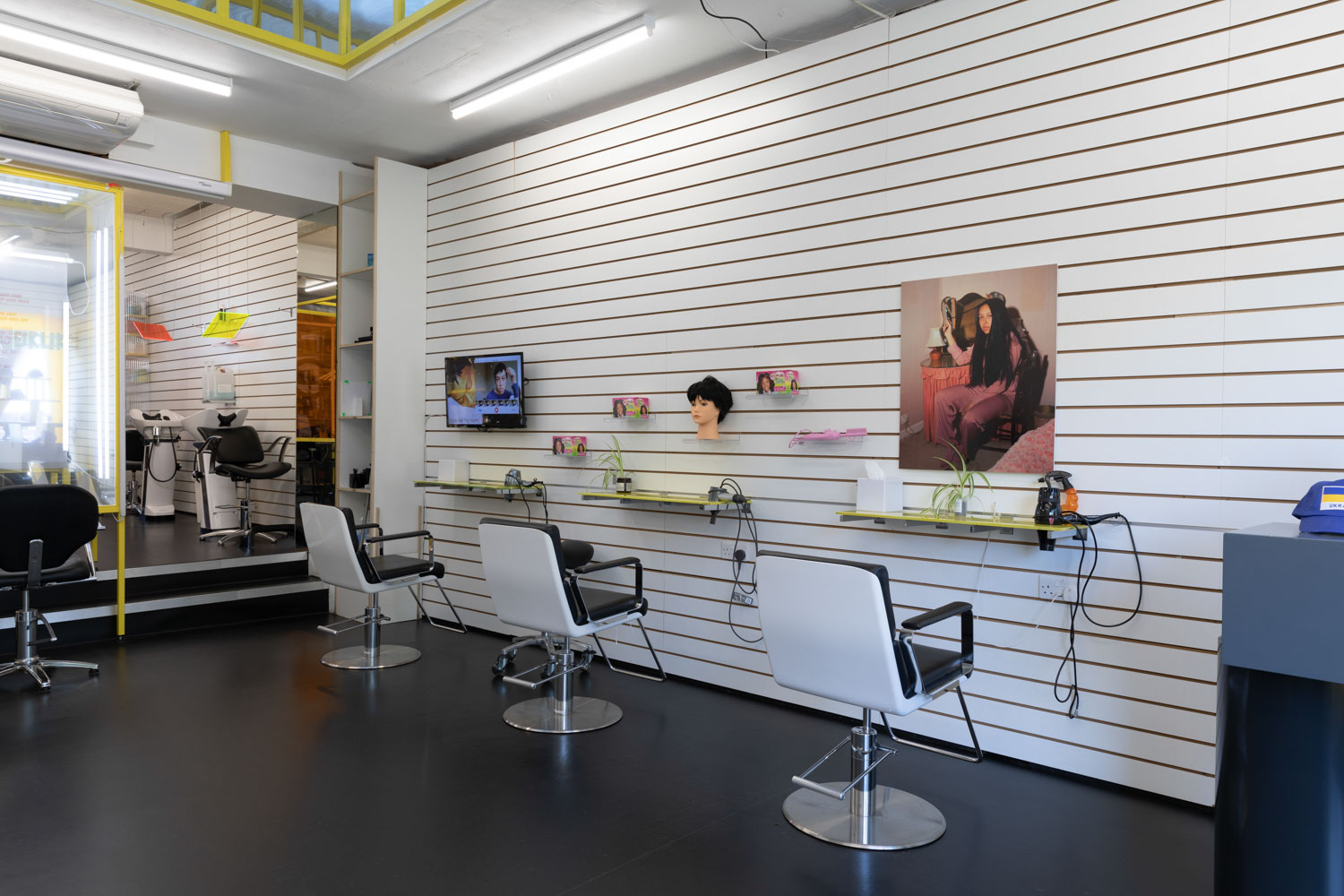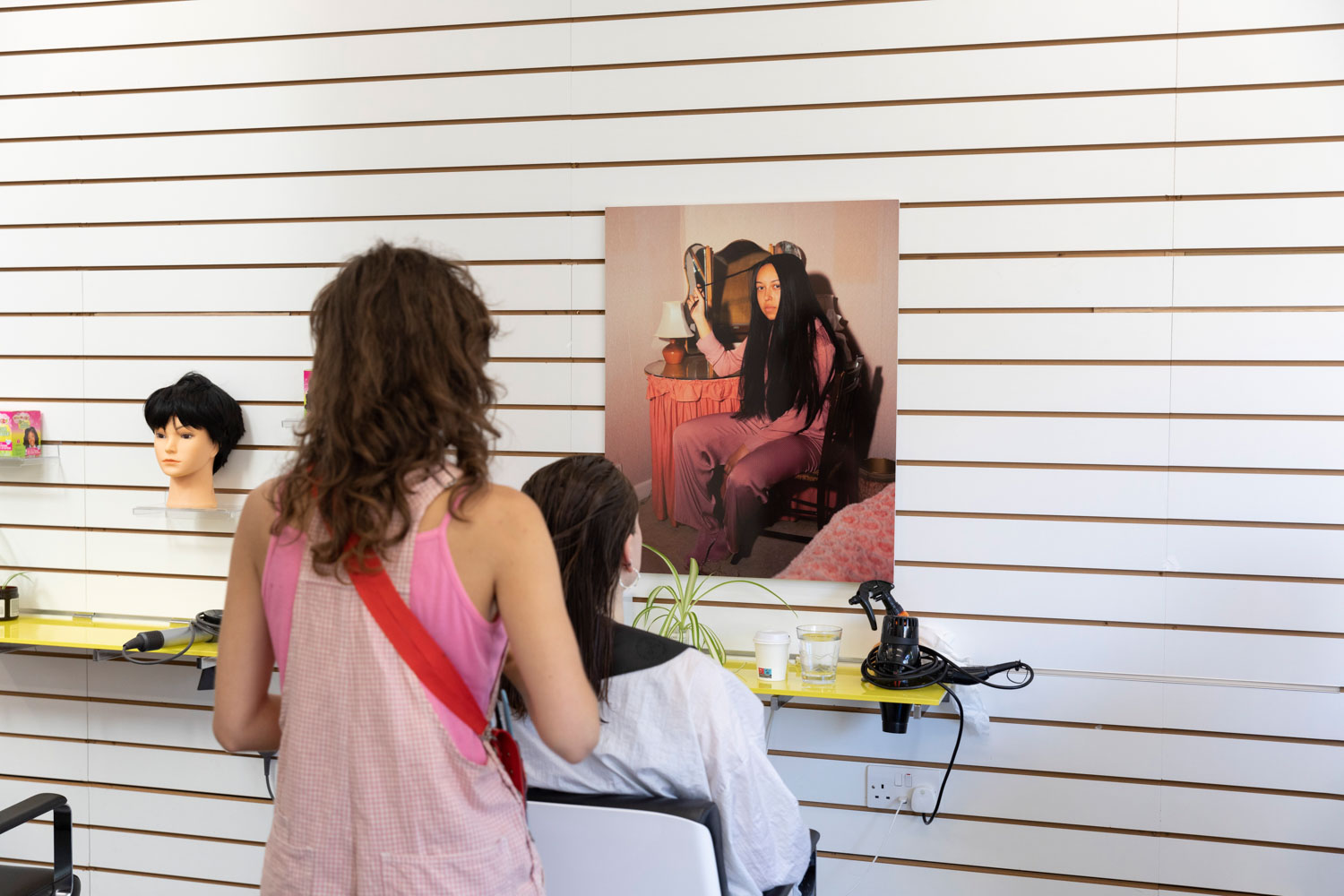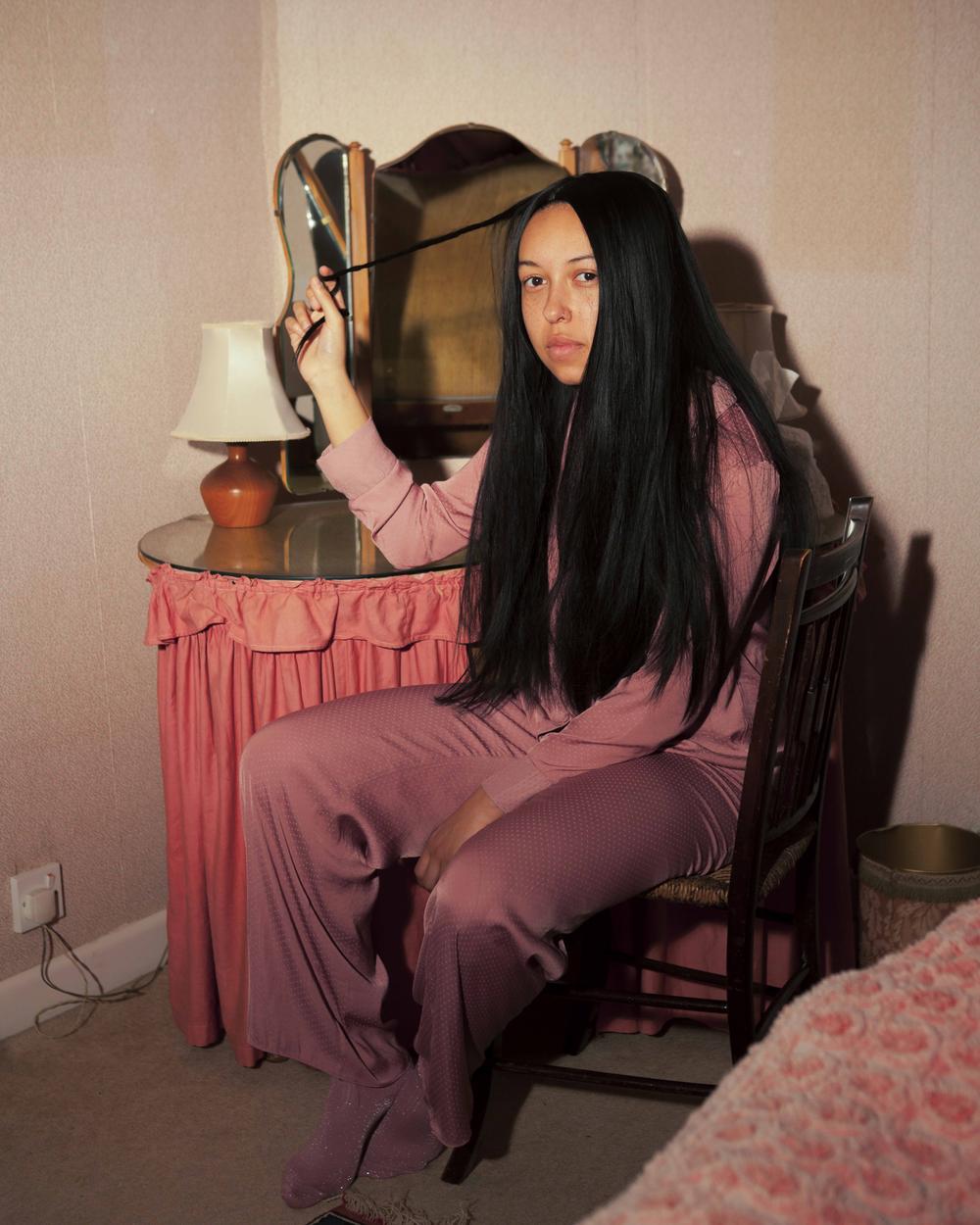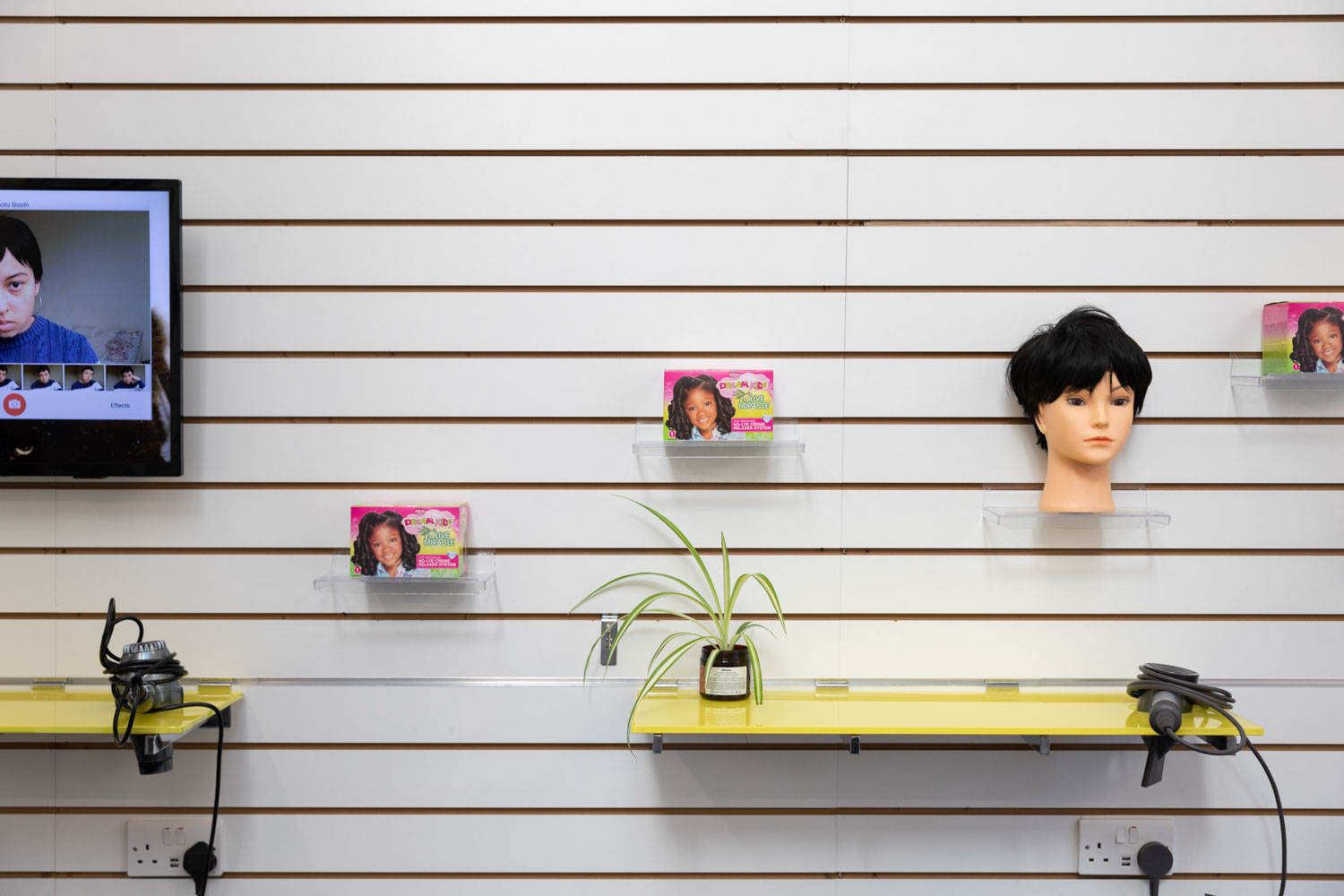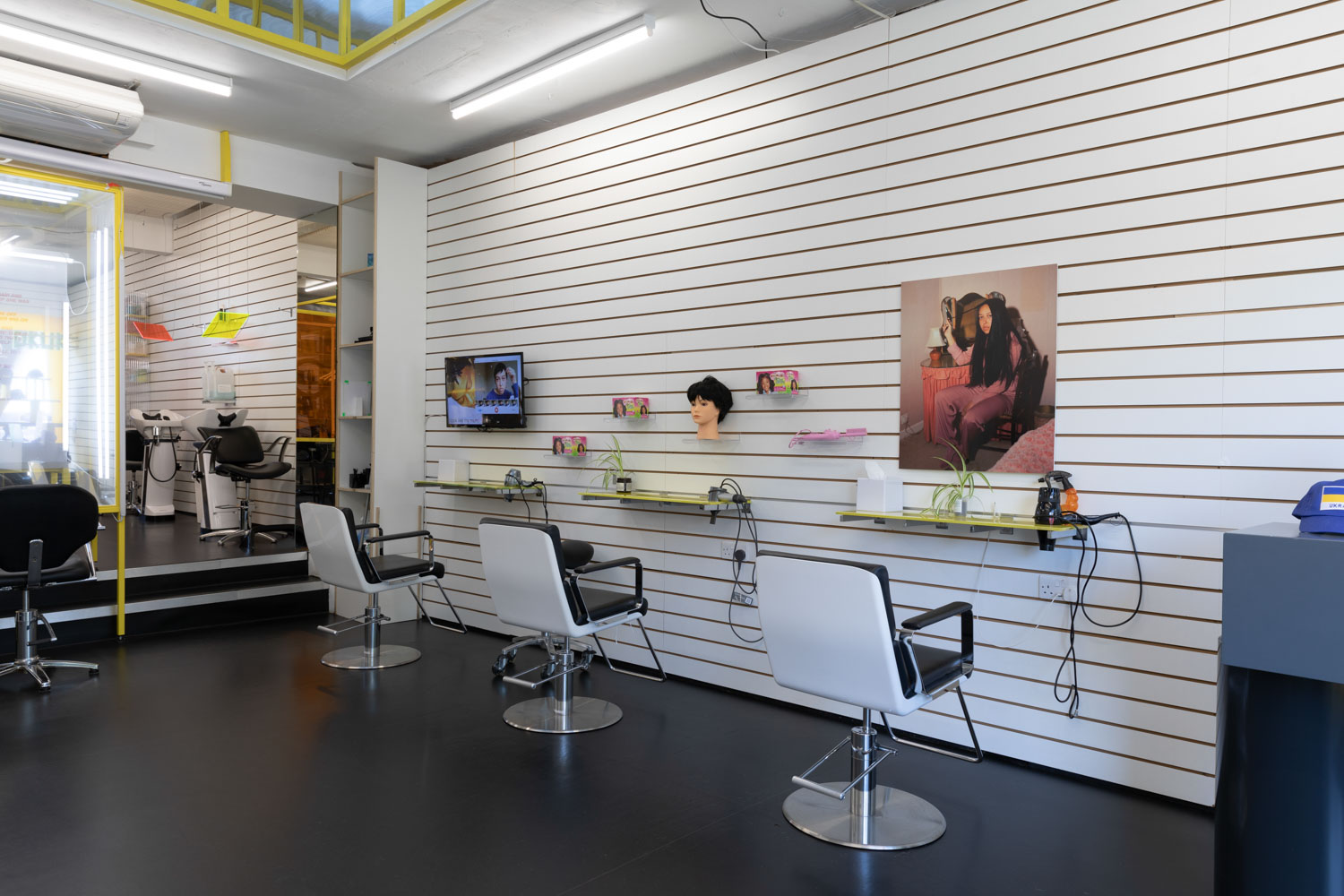the unbeweavable truth
Daisy Jones
“I feel like a member of Destiny’s Child
Not a Beyoncé, or a Kelly
Maybe that one that got cut
I think her name’s LaTavia
Bills, Bills, Bills is playing as I write this:
♪ Can you pay my bills
Can you pay my telephone bills
Can you pay my automo’ bills
If you did then maybe we could chill
I don’t think you do
So, you and me are through ♪
I might never take this wig off.”
Merging two projects created while living and studying in Bournemouth the artist confronts us with the subject of hair, specifically her hair. Some bought, some grown, some lost to chemical relaxer – but that’s a story for another day.
Call Me Kelly & 3c each deal with black hair from a different lens, the first being an attempt at escaping into being someone else through the transformative power of wigs. But with each of these attempted escapes we can see that she is never fully able to escape into any of the characters she’s trying to be.
In the second work the artist sits passively as she is surrounded by curious white hands. While the action may seem harmless at first, we can see the deep impact that is felt by being made to feel Other in your surroundings.
It is up to us to decide how much of what Jones is portraying relates to black femininity as a whole. Is black women’s use of wigs inherently performative? Do all black women get vexed when you touch their hair? (Almost definitely yes)
The subject of black hair has exploded in popular culture from Solange’s masterpiece Don’t touch my hair, to Emma Dabiri’s incredible book of the same title. If you haven’t thought about black women’s hair in a different way maybe as yourself why and if you have touched a black woman’s hair without her permission since 2017 please exit the vicinity with grace and decorum.
Bio.
Daisy Jones is a multi-media artist based in London. Her work is currently made in response to the representation of race and black femininity within the UK. Inspired by artists such as Samuel Fosso and Carrie Mae Weems, she aims to use deadpan humor as a tool to approach difficult subject matter.

